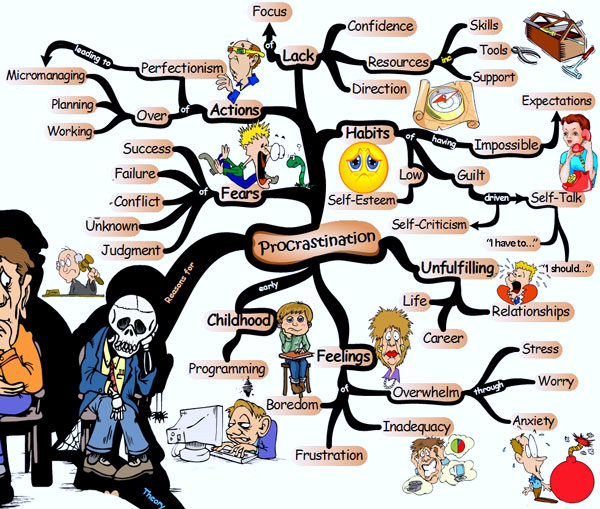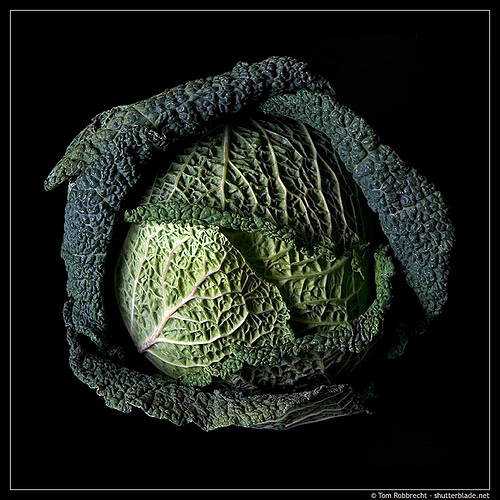Category Archives: Perfection
That’s Who I Used to Be
“Every forward step we take we leave some phantom of ourselves behind.” –John Spalding
There are some people who knew all too well the person I was – before I started to focus on becoming a more emotionally healthy person through personal growth. I know that a person can’t do the kind of work I have on myself and remain unchanged. However, for whatever reason, these people cling to the toxic images in their minds of my former self. I know that each day brings more depth to my spirituality, and with that comes change.
A friend of mine once shared with me that he begins each day by saying out loud, “O.K. God, surprise me!” Although each day brings new challenge, the one thing it won’t bring is perfection. I know that each day I can expect a mixed bag of experiences and all kinds of emotions to match.
If I begin to feel discouraged because of someone’s inability or refusal to see how different I have become, or even negative about life in general, I cultivate an attitude of gratitude by looking back at how far I have come. I remind myself, its progress I’m looking for in myself, not perfection. There’s always something to be grateful for, including the ability to be grateful!
Related Articles
- The Priceless Gift of Personal Growth (christophersmark.wordpress.com)
- “A Letting Go” for the Holidays (christophersmark.wordpress.com)
- Damn Heels Hurt! When In Pain, Who Knows Best Where it Hurts? (christophersmark.wordpress.com)
- S.T.A.R. A Tool to Choose Healthy Alternatives (christophersmark.wordpress.com)
- For All This We Can Be Grateful and Joyful (christophersmark.wordpress.com)
Ask for Help
“Asking for help does not mean we are weak or incompetent. It usually indicates an advanced level of honesty and intelligence.” — Anne Wilson Schaef
I’ve received a lot of help lately. Most from my dearest friend and some from people I never imagined I would receive so much of their time or efforts. I don’t like to ask. I’ll spend more energy talking about how hard it is for me to ask, than the energy I’d expend simply asking for what I need.
Many of us may have grown up in isolation and with shame being constantly reinforced the way I did. Help began to feel like a luxury reserved for other people. I thought I didn’t deserve it. I thought I should be able to handle everything. I failed to realize just when I needed help, because I’m so accustomed to living life in a “crisis mode.” I tell myself that my concerns and problems aren’t important enough to bother somebody with. Then, when life becomes really complicated, I blame myself for feeling overwhelmed and almost unable to act.
But we all deserve help. We deserve all the help that we may want and need, whether it’s a ride to an appointment or for someone’s shoulder to cry on when we’re sad or upset. We are worth the time, effort and concern of others – not because any of us is different, but because we are the same.
Related Articles
- I Feel As Though I’ve Lost My Way In This World (christophersmark.wordpress.com)
- How does it make you feel? (jennasauber.com)
- The Kindness Blotter: A Spate of Compliments and Helping Hands (fort-greene.thelocal.nytimes.com)
Procrastination
“Without discipline, there’s no life at all.” –Katharine Hepburn
I have deadlines in my life that I must meet. Don’t we all? There are bills to pay, appointments to make, responsibilities at work or home, kids, pets, school and all the innumerable small markers that push life forward.
When I realize that I’m procrastinating I need to be committed to not shaming myself. Procrastination does not indicate failure. How realistic would it be if we looked forward to doing unpleasant things? It’s human to avoid what we’d rather not be doing.
I find that as I free myself from the burden of perfectionism, I’m free to better accept my responsibilities. Meeting deadlines as well as we can, one at a time, has a pay off in serenity and manageability of life. When we’re crisis ridden, we’re forced to live by other individual’s demands, rather than our own choices.
So, in the face of procrastination, forgive yourself, laugh at yourself, live fully in the present and keep going. After all, tomorrow can be better than yesterday.
Related Articles
- Procrastination and the Perfectionism Myth (psychologytoday.com)
- Resolve to end to Procrastination (gregghake.com)
- Games People Play… at Work (psychologytoday.com)
A Rose Smells Better than a Cabbage
Many of us along our paths of personal growth are perfectionists who have been brought up to believe in nothing other than the ideal. When we fall away from perfection, we plunge from the heights of idealism to the depths of misery and self-abuse.
We can do better by being less “perfectionistic”. When we can show and accept our real strengths and defects we get a whole new perspective on ourselves and a true sense of balance. We learn to be flexible and to appreciate the diversity of life (even the humble cabbage).
Even if I don’t especially like cabbage soup, I can recognize that all things may be good to those who love life and keep their eyes wide open.
Related Articles
- This Is Who I Am (christophersmark.wordpress.com)
- 10 Ways To Tell If You Are A Perfectionist (celestinechua.com)
- The Pursuit of Perfect as the Basis for Blaming (psychologytoday.com)
Imperfection Seen Through a Filter of Love
“The principal mark of genius is not perfection but originality, the opening of new frontiers.” — Arthur Koestler
Many of us like me believed that we should strive for perfection, and often this means imitating someone whose life seems exemplary to us. We take enormously high standards from outside and we soon begin applying them to ourselves. I find that in my mind I obsessively check all the things people in my life may need or expect from me. Many of these thoughts and self-assessments reveal failure(s) on my part. I realize that I then begin to pre-plan the reaction. My pattern is I then start to beat myself up for my failures.
When we fall short, we berate ourselves. We become convinced that because we aren’t saints, we must have fallen from grace; imperfect, we come to despise ourselves. Surely, no one is as worthless as we are! We’ve failed again. Relapsed maybe, or acted out perhaps. Who could love us if they knew who we really were? When we take part in healthy relationships, we are not seen as we see ourselves – the shortfalls, the failures, missed opportunities, or any of the other negative ways we see us. Good and healthy people filter the way they see us and the filter is love.
So why then, do we insist on being judged by impossible standards? Why, oh why would we want to be like someone else? Why should we not search for what makes us original, precious, and worthy of care and love? Then we don’t have to go around with our eyes on the ground; we can look the world in the face because we know who we are. Who? Ourselves!
Related Articles
- Want to be happy? Stop trying to be perfect (cnn.com)
- For where there is love there is reverence (askrealitylove.wordpress.com)
Sin Against Life
“The real sin against life is to destroy beauty, even one’s own – even more one’s own, for that has been put in our care, and we are responsible for its well-being.” —Katherine Anne Porter
A good way to start each day is by asking, “What can I do to take care of myself today?” To ask and answer that question is to affirm our belief that we’re worth taking care of. It also requires looking within ourselves with honesty. Is it hard to admit that we’re struggling? Or that we’re feeling sick? Or those feelings as rage, sorrow or fear are predominant? Or that we’re working through issues that may be as difficult as incest, sexual, physical or emotional abuse?
Meeting our needs with gentleness and compassion soften the task of being good to ourselves. It may take a long time of asking, “What can I do to take care of myself today?” before we actually know how to, or want to. But just as a good parent thinks of how to take care of a child, we can learn to do the same for ourselves. Each time we do, we move closer to higher self-esteem.
Related Articles
- Kristen Houghton: How Healthy Is Your Relationship? (huffingtonpost.com)
- A Friend In Need (tomaplomb.blogspot.com)
- Think Bigger (christophersmark.wordpress.com)
- Boys’ Self-Esteem Problems (thedailybeast.com)













Opinions, Feedback, Comments and Judgments
Dec 28
Posted by Mark Schmitz
“Treat a work of art like a prince; let it speak to you first.” — Arthur Schopenhauer
There have been many times when I felt that I always had to have and offer an opinion about everything right away. After a movie or a concert, such as, I often wanted to step right in with my comments and judgments. I would just “shoot from the hip”, without thinking or being attentive to my feelings, or the feelings of others.
This can be a way of warding off the experience, enclosing it within certain words. I’m quite certain that all of us have feared that we might be caught off guard and compelled to change or expand our own ideas. We feared being too vulnerable!
Images, sounds, poems, and plays can cause us to open ourselves to the unfamiliar and the new, and if we are quiet and attentive, we can come to fresh insights and understandings. And so it is too, with people. If we are patient and willing to listen, we will always be learning and growing through contact with others.
The beauty and joy of life dwell within differences. I am learning to be open and attentive to what has not been part of my existence up to now, so that it may come to color and enhance my life.
Related Articles
Posted in Change, Conflict, Fear, Honesty, Humanity, Intimacy, Life, Love, New Age, Opinions, Perfection, Personal Growth, Relationships, Spirituality, Truth
Leave a comment
Tags: Arthur Schopenhauer, Change, Comments, Conflict, Creativity and Music, Dislikes, Emotion, Fear, feedback, Honesty, Humanity, Ideas, Intimacy, Judgments, Life, Listenting, Love, Music, New Age, Opinions, Original, Perfection, Personal Growth, Plays, Poems, Relationships, Sounds, Spirituality, Truth